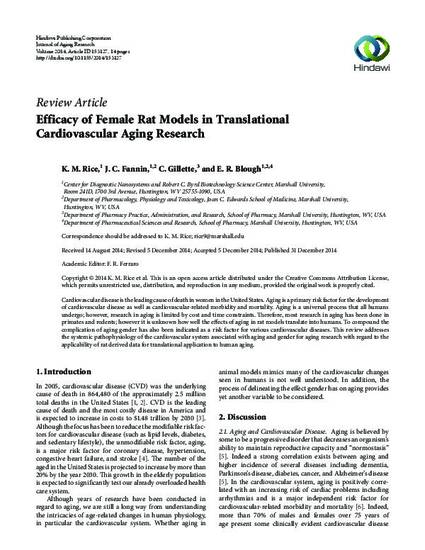
Cardiovascular disease is the leading cause of death in women in the United States. Aging is a primary risk factor for the development of cardiovascular disease as well as cardiovascular-related morbidity and mortality. Aging is a universal process that all humans undergo; however, research in aging is limited by cost and time constraints. Therefore, most research in aging has been done in primates and rodents; however it is unknown how well the effects of aging in rat models translate into humans. To compound the complication of aging gender has also been indicated as a risk factor for various cardiovascular diseases. This review addresses the systemic pathophysiology of the cardiovascular system associated with aging and gender for aging research with regard to the applicability of rat derived data for translational application to human aging.

The copy of record is available from the publisher at http://dx.doi.org/10.1155/2014/153127. Copyright © 2014 K. M. Rice et al. This is an open access article distributed under the Creative Commons Attribution License, which permits unrestricted use, distribution, and reproduction in any medium, provided the original work is properly cited.